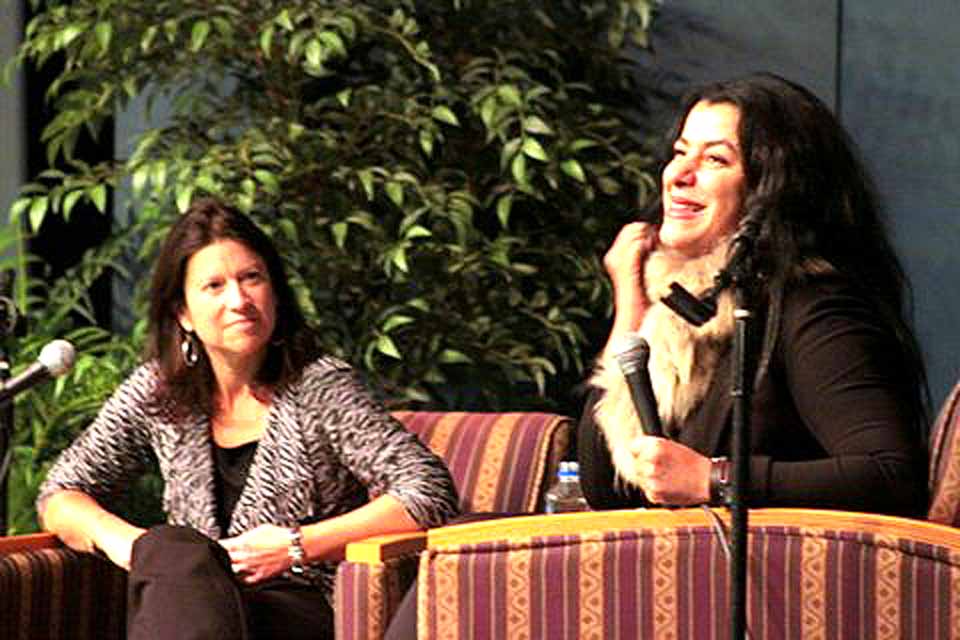Author Satrapi's 'Persepolis' Pierces
Censorship, She Tells SUNY Audience

By LIBBY CUDMORE • allotsego.com
ONEONTA

Seated comfortably between ferns and a slate-blue backdrop, Marjane Satrapi very quickly made herself at home chatting with Dr. Susan Bernardin. “English is not even my third language,” she said in a thick French accent by way of introduction. “When I come to American for the first time, I learned English by watching a lot of movies, so I was saying the f-word a lot. I will not say it again here.”
Satrapi, author of SUNY Oneonta’s 2014 Common Read “Persepolis”, was on hand this evening to give the Mills Distinguished Lectureship to a full Alumni Field House. “When I was young, I thought I had to write like Dostoevsky, but I couldn’t, because he was a genius,” she said. “If I was Dostoevsky, you would know it.”
“Persepolis” deals with Satrapi’s childhood during the Islamic Revolution, during which she rebelled by declaring herself a prophet, wearing high-top Nikes and buying illegal tapes of AC/DC and Kim Wilde. “I was a teenager, all teenagers have bad taste in music,” she joked with the crowd.
She read Batman comics when she was a kid, but it wasn’t until she met French comics artist David Beauchard, who mentored her and introduced her to comic writers like Art Speigelman, author of “Maus.”
You have reached your limit of 3 free articles
To Continue Reading
Our hard-copy and online publications cover the news of Otsego County by putting the community back into the newspaper. We are funded entirely by advertising and subscriptions. With your support, we continue to offer local, independent reporting that is not influenced by commercial or political ties.

